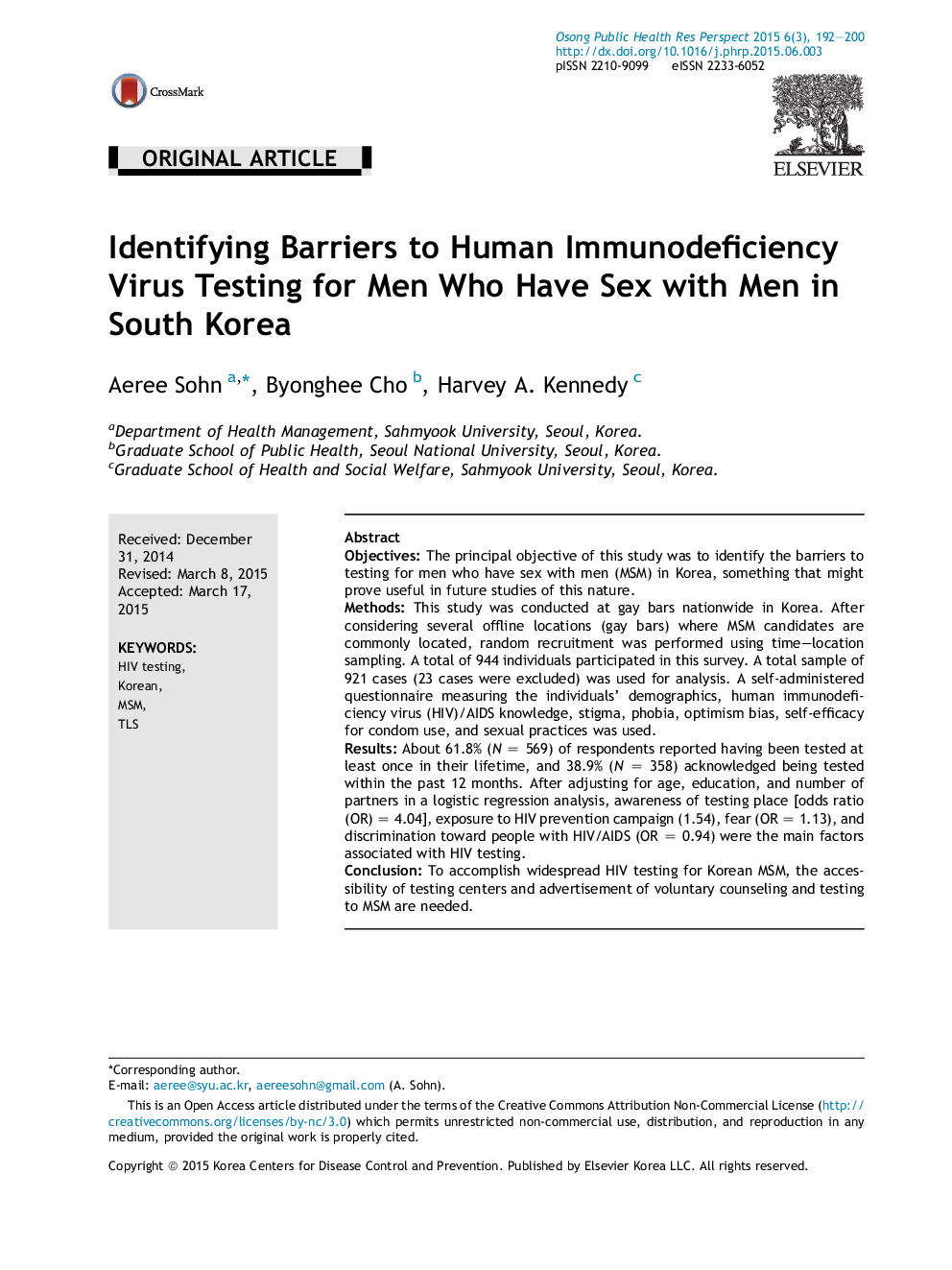| Article ID | Journal | Published Year | Pages | File Type |
|---|---|---|---|---|
| 4201898 | Osong Public Health and Research Perspectives | 2015 | 9 Pages |
ObjectivesThe principal objective of this study was to identify the barriers to testing for men who have sex with men (MSM) in Korea, something that might prove useful in future studies of this nature.MethodsThis study was conducted at gay bars nationwide in Korea. After considering several offline locations (gay bars) where MSM candidates are commonly located, random recruitment was performed using time–location sampling. A total of 944 individuals participated in this survey. A total sample of 921 cases (23 cases were excluded) was used for analysis. A self-administered questionnaire measuring the individuals' demographics, human immunodeficiency virus (HIV)/AIDS knowledge, stigma, phobia, optimism bias, self-efficacy for condom use, and sexual practices was used.ResultsAbout 61.8% (N = 569) of respondents reported having been tested at least once in their lifetime, and 38.9% (N = 358) acknowledged being tested within the past 12 months. After adjusting for age, education, and number of partners in a logistic regression analysis, awareness of testing place [odds ratio (OR) = 4.04], exposure to HIV prevention campaign (1.54), fear (OR = 1.13), and discrimination toward people with HIV/AIDS (OR = 0.94) were the main factors associated with HIV testing.ConclusionTo accomplish widespread HIV testing for Korean MSM, the accessibility of testing centers and advertisement of voluntary counseling and testing to MSM are needed.
